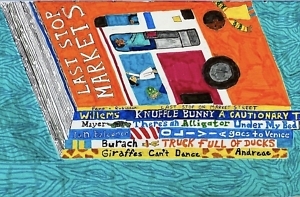A Swerve in an Unexpected Direction
The night I stopped reading with my 8-year-old son
Henry, my 8-year-old son, abruptly stopped reading with me. It happened on a school night during our bedtime reading routine. “I want to read by myself,” he said, rising from the couch and bouncing around the living room. I scanned his face for a smirk, waiting for a laugh, expecting a Gotcha, Dad! But his expression revealed no intent of trickery. My mind spun. What do you mean you don’t want to read with me? We’ve been reading together since you were in diapers.

Prior to that night, we’d been reading Ramona Quimby, Age 8 and James and the Giant Peach and Tales of a Fourth Grade Nothing. Entering these imaginary worlds with him brought joy, but now the door had slammed shut.
“Are you sure you don’t want to read?” I asked.
“Yes,” he said, retreating to his bedroom with a flashlight and Diary of a Wimpy Kid.
I told my wife, expecting her to share my disbelief. How could he abandon us for Diary of a Wimpy Kid? But she patted my shoulder and said nothing on her way to the kitchen.
Moping around the house, I acted as if I was the first parent to be cut off from reading with their kid. But parenthood delivers sudden reversals to all who dare to raise a child, particularly those who become overly attached to routines, traditions, or phases. You never know when they will end, sending you swerving in a new direction.
My heart sank into a pool of disappointment, but my gut informed me a positive change had occurred, a sign of my child claiming independence. This is what parents want, right?
Considering Henry’s slow and bumpy path to literacy, his decision to read alone should have brought an instant smile to my face. His ADHD and the disruptions of the pandemic caused him to struggle, and while he was quick to learn mathematics, he avoided reading, refusing to practice at home. I introduced him to literacy games, but they didn’t help because he figured out how to guess the right answers. And when younger kids read aloud with ease, I sensed his embarrassment, which made him want to avoid reading even more.
What is a parent’s role in teaching a child to read? Reading remains one of the most vital skills. Despite our culture becoming increasingly image-based due to the ever-widening reach of screens, reading text remains crucial to operating in daily life. Perhaps I’m stating the obvious, but we need an occasional reminder to invest in literacy skills, not only to prevent kids having a severe disadvantage in school but to build the foundational skills that undergird our communities.
While Henry read in the top bunk, I considered what to do with my newfound free time. Should I load the dishwasher or pay bills or exercise? Adulting would be a good use of time, but my coping mechanism for dealing with unpleasant realities is to wallow in nostalgia, attaching to the past rather than face the present moment. At the dining room table, inspired by a drawing project seen online, I drew a stack of my favorite picture books, ones Henry and I had read hundreds of times. If we could no longer read them together, I’d draw them. My wife passed through the dining room, glanced at my drawings, and patted me on the shoulder.
I drew for several nights until my self-absorbed sadness gave way to the reality: A child had claimed his own reading life, and my necessary response as his parent was not to tread on this sacred space. How would I have felt as a kid if my reading space had been invaded by adults while I immersed myself in Charlotte’s Web or Island of the Blue Dolphins? Those worlds felt like my own, and I want my kids to feel the same way. Children need to carve out not only physical spaces but literary ones, too, and they must walk by themselves through unopened doors to new imaginary worlds (even when their father is trying to go with them).
In the future, if our reading overlaps by choice and mutual interest, I’ll be grateful, but if our choices wildly diverge, I will be thankful he’s reading and not lost in a YouTube rabbit hole. The best we can do for our children is to teach them necessary skills, accompany them to the threshold, and resist the urge to follow. A harsh reality of raising kids is that just when you think your heart is safe, parenthood finds a way to sneak up on you from the backside and rip a chunk of your heart right out. Sadness comes more easily than joy when the moments of breaking apart arrive.
New routines have come, and now I follow Henry to his bed to say goodnight. He climbs to the top bunk while his little brother sleeps below. In his lit corner of the room, I place one of my hands on the piles of books pushed against the railing and my other hand on his shoulder. “Goodnight, buddy, have a great sleep,” I say, but his attention is already lost as he buries his face in Dog Man.

Copyright © 2024 by Billy Kilgore. All rights reserved. Billy Kilgore is a writer, at-home dad, and ordained pastor. He lives with his wife and two sons in Nashville. His writing has appeared in The Washington Post’s “On Parenting” column, Narratively, Scary Mommy, and Fatherly. He is a graduate of the University of Tennessee at Chattanooga.


